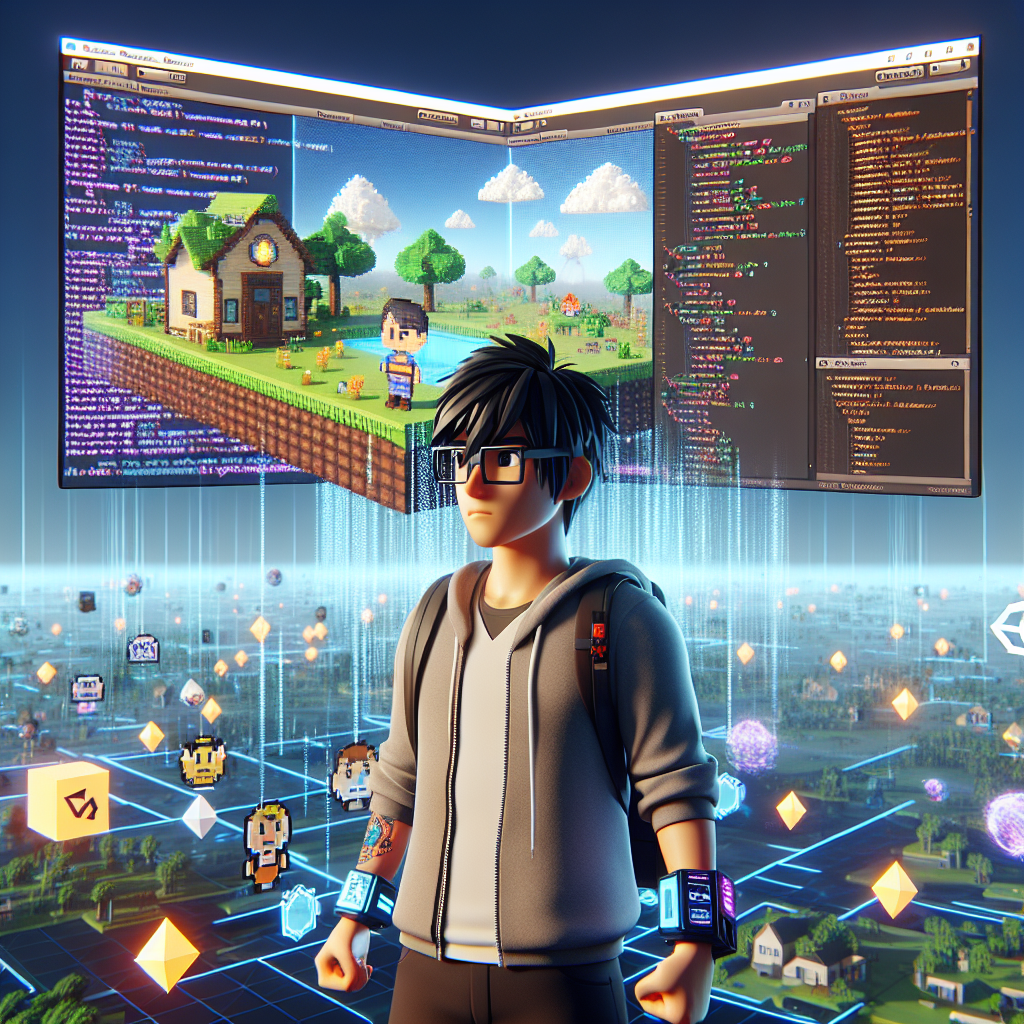Level Up Your Skills: A Beginner’s Guide to Game Creation in Unity
In an age where gaming is a multi-billion dollar industry, there’s never been a better time to dive into the world of game development. Whether you’re a passionate gamer longing to create your own adventures or you’re simply interested in picking up a new skill, Unity is an outstanding platform to start your journey. In this guide, we’ll take you through the essential steps, resources, and tips to ease you into game creation with Unity.
What is Unity?
Unity is a powerful cross-platform game engine used to create both 2D and 3D games. It’s favored by indie developers and large studios alike for its user-friendly interface, extensive asset store, and strong community support. With Unity, you can deploy your game on multiple platforms, including PC, consoles, and mobile devices, making it an ideal choice for aspiring game developers.
Getting Started
1. Download and Install Unity
Before you can start creating games, you’ll need to download the Unity Hub, the central application that helps you manage your Unity projects and installations. Simply visit the Unity website and download the Unity Hub. Once installed, you can easily manage different Unity versions and projects.
2. Understand the Interface
Once installed, launch Unity and create a new project. Familiarizing yourself with the interface is crucial. You’ll encounter several essential windows:
- Scene View: Where you build and arrange your game.
- Game View: A preview of what the game looks like while playing.
- Inspector: Displays properties of selected objects.
- Hierarchy: Lists all the game objects in your scene.
- Project Browser: Your asset management tool for importing scripts, models, and textures.
3. Learn C# Basics
Unity uses C# (pronounced "C-sharp") as its main programming language. If you’re new to coding, start with the basics of C#. Resources such as Codecademy or Microsoft’s C# Guide can help you understand core concepts like variables, control structures, and object-oriented programming.
4. Follow Tutorials
One of the best ways to learn game development is through tutorials. Unity provides a wealth of learning materials, including:
- Official Unity Learn Platform: Offers step-by-step tutorials for creating specific game genres (2D, 3D, AR/VR).
- YouTube Channels: Explore channels like Brackeys, Blackthornprod, and Code Monkey for engaging video tutorials.
- Udemy Courses: Consider enrolling in courses specifically tailored for beginners.
5. Start Small
As a beginner, it’s important not to get overwhelmed. Start by creating small projects that harness core mechanics. Build a simple 2D platformer or a basic endless runner. Breaking down your project into manageable tasks will keep you motivated and help you grasp fundamental concepts without feeling overwhelmed.
Creating Your First Game
Step 1: Create a New 2D Project
Open Unity and choose a 2D template to create your first game. Click on “New Project,” select 2D from the dropdown, name your project, and set the save location.
Step 2: Design Your Game Scene
Utilize the Scene View to lay out platforms, backgrounds, and game objects. For a basic platformer, you can create a ground game object and add your character sprite.
Step 3: Gameplay Mechanics
Implement simple mechanics by adding scripts. Attach a script to your player character to allow movement using Unity’s Rigidbody2D component. Catch tutorials focused on Player Movement to help you create responsive controls.
Step 4: Game Logic and Scoring
As the game takes shape, you’ll need to implement game logic—like checking for collisions or updating the score. Use the Inspector to attach scripts to objects you want to interact with.
Step 5: Testing and Iteration
Regularly test your game within the Unity Editor. Playtesting allows you to identify bugs and refine the player experience. Don’t be afraid to iterate on your design!
Joining the Game Development Community
Game development can be a solitary journey, but it doesn’t have to be! Engage with other developers through forums, Discord servers, or social media. Platforms like Unity’s community forums and Reddit’s r/gamedev offer invaluable support and resources.
Conclusion
Starting your journey in game creation using Unity can be a thrilling and empowering experience. Remember, the key is to stay curious and persistent. Each project you tackle will boost your skills and confidence. So, grab your keyboard and get those creative juices flowing! Your first game is just a few steps away. Happy developing!




